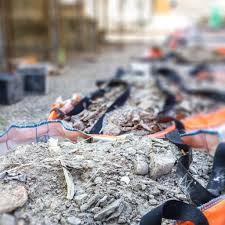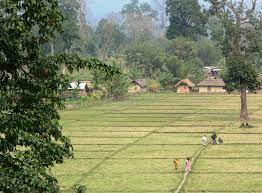The Different Types of Landfills
1. Hazardous waste landfill
These are landfills, also known as secured landfill that allows disposal of only hazardous wastes. Hazardous waste is defined as waste, which is dangerous or difficult to keep, treat or dispose of and may contain substances which are corrosive, toxic, reactive, carcinogenic, infectious, irritant and harmful to human health or which may be toxic to the environment.
Some types of hazardous waste are however, not permitted to go to landfill sites, even hazardous waste landfill sites, and these include liquid waste, flammable waste, explosive or oxidizing wastes, infectious clinical or hospital wastes.
Hazardous wastes are deposited into designated and permitted ‘hazardous waste landfill sites’ with a high specification containment barrier liner system to contain the derived leachate and landfill gas and to allow for their collection and treatment.
2. Non-hazardous waste landfill
Non-hazardous waste includes municipal solid waste and a wide range of industrial wastes, such as organic and inorganic wastes, provided that they are non-hazardous. Significant features of non-hazardous wastes are that many are ‘bioreactive wastes’ which undergo biodegradation within the landfill environment.

Read Also : Proper Waste Reduction Process
Non-hazardous wastes are permitted to be deposited into ‘non- hazardous waste landfill’ sites. However, stable, non-reactive hazardous wastes, for example, those that are solidified or vitrified, are also permitted to be deposited into non-hazardous waste landfills, provided that their leaching behavior is equivalent to the general category of non- hazardous waste.
There is also the requirement that such non-reactive hazardous wastes are deposited in cells within the landfill that do not contain biodegradable wastes. The site requires a containment barrier liner system to control, contain and collect and then treat the produced leachate and landfill gas.
3. Inert waste landfill
Inert waste is defined as waste that does not undergo any significant physical, chemical or biological transformations. In addition, inert waste will not dissolve, burn or otherwise physically or chemically react, biodegrade or adversely affect other matter with which it comes into contact in a way likely to give rise to environmental pollution or harm human health.
The total leachability and pollutant content of the inert waste and the ecotoxicity of the leachate must be insignificant and, in particular, not endanger the quality of surface water and/or groundwater.
Inert wastes are therefore deemed not to pose a significant environmental risk either now or in the future since, as their name suggests, they are wastes of no or low reactivity.
As such, inert wastes do not undergo significant chemical, biological or physical degradation to yield polluting materials and consequently, only the minimum barrier containment system is required.
Typical inert wastes include bricks, glass, tiles and ceramic materials, concrete, stones, etc.
In conclusion, landfilling of wastes appears to be easy and cheap way of managing waste. There is however problem as regards the leachate that is produced in many of the older sites where houses are already built on the disused landfill sites or close to areas of housing.
Read Also : Proper Waste Recycle Process
Another issue is continual emission of greenhouse gases from the landfill, which is of serious concern. To contain the landfill gas and leachate, a barrier system which lines the landfill and acts as a barrier to the outside environment is required.
The landfill gas should be collected via a system of porous pipe work within the landfill site and then treated and used or flared. The leachate should be collected and treated to remove pollutants to environmentally acceptable levels. There is call for increasing need for modern landfill as a fully designed and engineered process with high standards of management.



